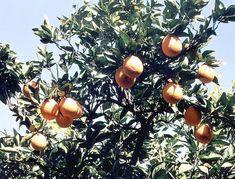
Nearly 400,000 trees producing easy-peelers, Valencia and Shamouti have been planted across the country, pointing to a recovery in the citrus industry.
"This signals a renewed confidence in the future of the country's citrus sector, after several years of decline in both acreage and yields," said Mena Davidson, general manager of the Citrus Marketing Board of Israe l(CMBI).
According to data released by the CMBI last week, 600ha of new trees have been planted this summer especially in central Israel known for its optimal growing conditions for Shamouti, Navel and Valencia Late. North-western Negev has also seen heavy plantings of new Israeli varieties Orr and Mor, which fetched premium prices on foreign markets last season.
The season just-ended has proved profitable for growers motivating many to make the investment in new plantings. The availability of water after several years of drought, and of manpower have also contributed to grower confidence and made the plantings possible.
Davidson told the Journal that easy-peelers comprise the bulk of the new orchards, which will bear commercial volumes of fruit in four years' time.
Meanwhile, the top three citrus processors in Israsel have also invested heavily over the past two years in planting new groves to ensure adequate supplies to industry in the future. This has been done in cooperation with citrus companies, notably with Mehadrin, the country's largest citrus-grower and exporter. Davidson added that citrus trees planted three to five years ago are now bearing fruit, which will contribute to an increase in Israel's export volume in forthcoming seasons.



